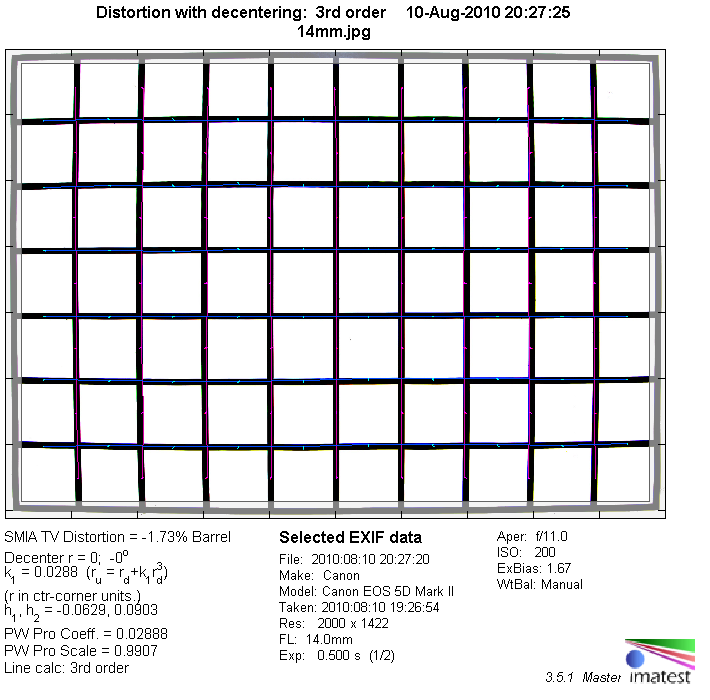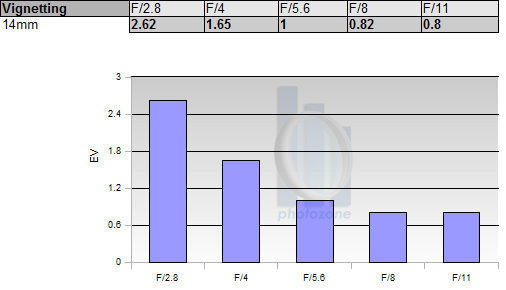|
Canon EF 14mm f/2.8 USM L II - Full Format Review / Test Report - Analysis |
|
Lens Reviews -
Canon EOS (Full Format)
|
|
Page 2 of 3

Distortion
The EF 14mm II has a very good distortion characteristic for a lens in this class. It produces only
a moderate degree of barrel distortion (~1.7%) which is usually nothing to worry about from
a field perspective.

Vignetting
Typical for such lenses there's some light fall-off at large aperture settings although the problems is actually
comparatively well controlled. However, at around ~2.6EV the vignetting is easily visible at
f/2.8 and it's still pretty obvious at f/4. Starting from f/5.6 it is no longer overly disturbing for such a kind
of lens.

MTF (resolution)
The Canon lens produced very good resolution figures in our MTF lab. The center resolution is
already excellent straight from f/2.8 but even the borders/corners are very usable at this setting.
There's a gradual increase in global quality when stopping down and the peak performance is reached
around f/8. Diffraction effects start to reduce the quality from f/11 onwards. The field curvature
(flatness of the focus field) is very moderate. The tested sample showed a very slight centering issue.
Please note that the MTF results are not directly comparable across the different systems!
Below is a simplified summary of the formal findings. The chart shows line widths per picture height (LW/PH) which can be taken as a measure for sharpness.
If you want to know more about the MTF50 figures you may check out the corresponding Imatest Explanations
Lateral Chromatic Aberrations (CAs)
A weakness of the Canon lens is the amount of lateral CAs (color shadows at harsh contrast
transitions). The average CA border width reaches 2px on the average at f/2.8 and f/4 but you can
reduce the issue by stopping down and it's quite acceptable from f/5.6 onwards.
Lateral CAs are correctable via post-processing (e.g. in Canon DPP or Photoshop).

|